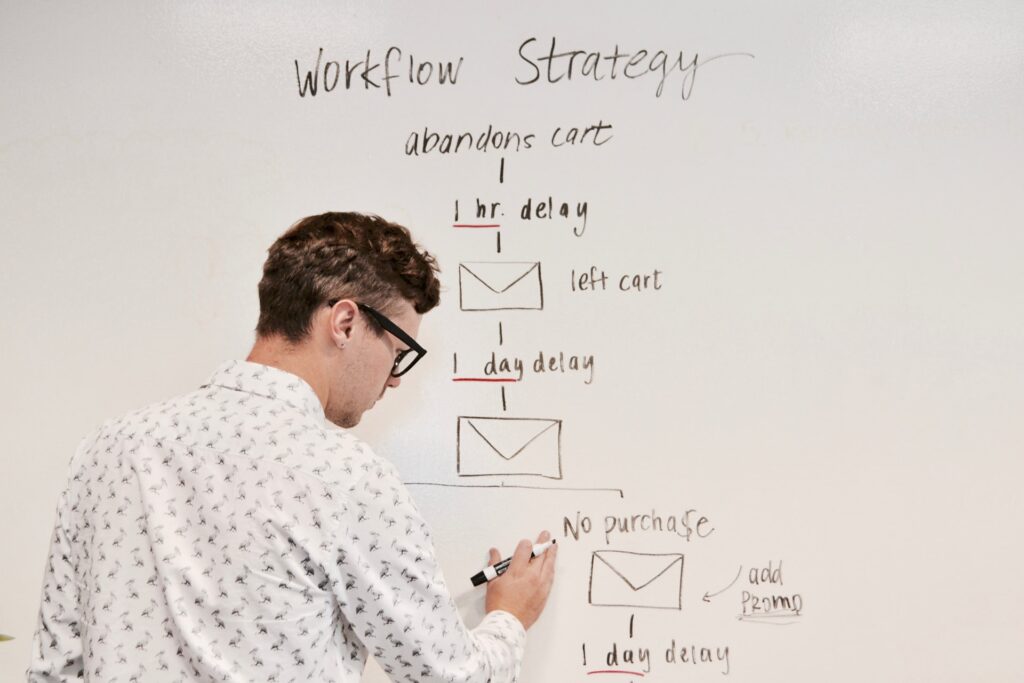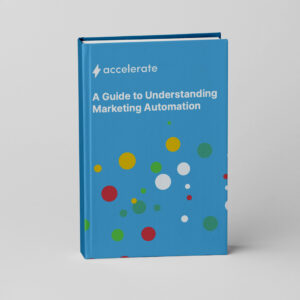Accelerate Blog / Steps to Get Started with Marketing Automation

Do they all integrate with each other? Seamless integration with your apps creates a 360-view of all your efforts and captures the consumer journey all throughout. Data sync allows you to monitor the leads being nurtured easily.
Take a look at this example. The moment a new lead comes in, the data is pulled from the CRM, and the lead gets enrolled in a drip campaign or retargeting ads. By the time your Sales team calls the lead, it’s warm enough to make a purchase. You also know where the leads are coming from, aka attribution model, so you have the visibility of which channel you should be leveraging more.

These are the top five factors to consider when pondering your marketing automation software:
Most marketers focus on the top four and forget about platform updates. Continuously reconditioning software gives you more facets to utilize—and it wouldn’t ever become obsolete in the years to come. You have peace of mind that your software keeps up with innovation, not impels you to choose another platform over your current one.
Connect your apps for a smooth workflow. Every time a lead travels along the consumer journey, you know which stage they currently are. Being aware of where your leads are at gives you an idea of which messaging to target them. This way, your messaging resonates more with the audience and captures their attention. It’s effective at pushing leads down the pipeline.
One-way or bi-directional sync between your CRM and automation software helps update the data of each account. Disjointed apps would add more manual work such as updating an account’s lifecycle stage, contact information, etc.
Deploy the right automation tool by following the steps on the ebook.

Audience segmentation is critical in marketing. It helps you deliver the right message to the right channel. Merging newsletter subscribers and customers is a big no-no. Your customers expect a different email campaign because they’re on the latter part of the funnel. Newsletter subscribers presume educational content and are at the top of the marketing funnel. The information they anticipate always deviates depending on where they’re at in the buying cycle.
Each automation software has a different UI and features. It’s a steep learning curve for new marketers. Vendors who have exceptional onboarding, training, and support won’t leave you hanging right after your purchase. They’ll train you until you’re comfortable using the platform. When issues arise, they are within reach to nip the issue in the bud.
Some vendors offer variations of support—via phone, email, or chat. Depending on your tier, you can have all of them. It’s important to take note of how responsive the support team is. Sometimes, it takes a couple of days before receiving a response. Delays could hurt your campaigns, or worse, performance.
Play with the email templates and create a campaign that suits your audience. Picture the workflow from newsletter subscription to net new customers, and create a list of routine activities that could be automated. Your team’s lives would be easier upon automating a run-of-the-mill job. Enroll an audience for each automated workflow. You can adjust the criteria for each workflow by filters.
Marketing automation converts the routine aspects of marketing to an automated workflow. It helps companies cultivate relationships, generate leads, and track customers throughout the consumer journey. Incorporating marketing automation into your strategy improves conversion time, communications, and KPIs. Just keep your ear to the street because there are always new updates.
Implementing an automation software isn't a walk in the park. Get support from a real automation expert.